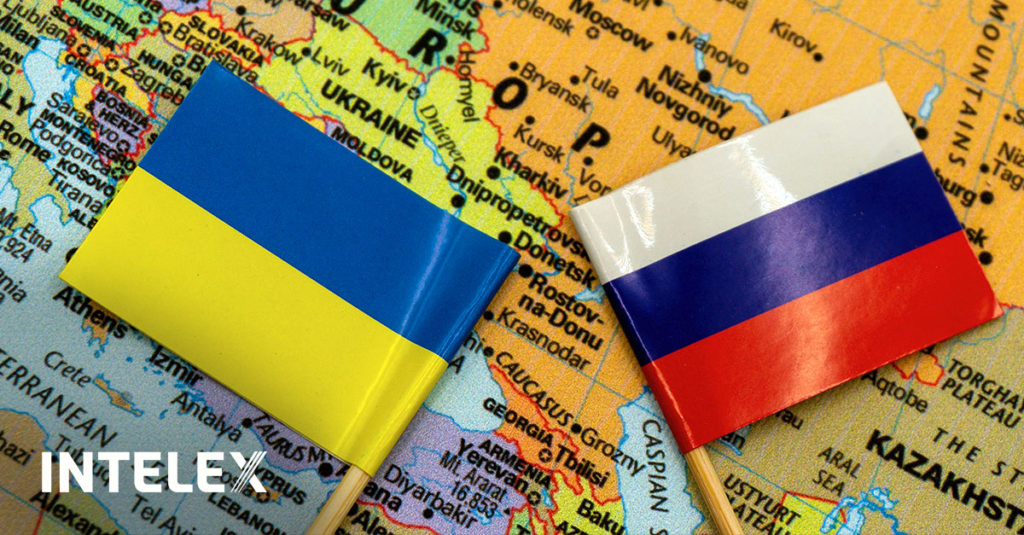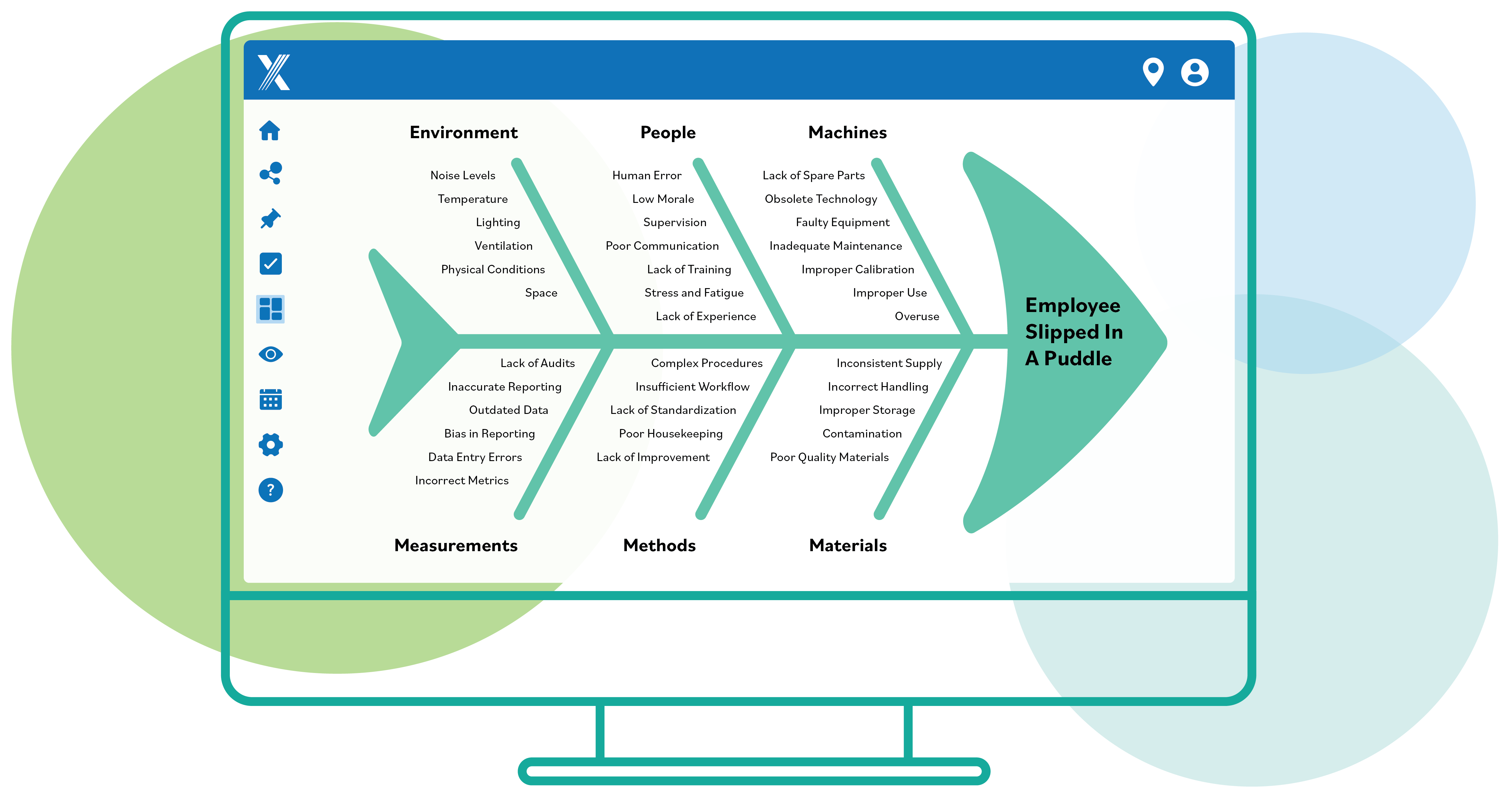How the War in Ukraine Is Impacting ESG and Supply Chain
April 20, 2022

Russian’s invasion of Ukraine on February 24, 2022 marked a radical shift in global geopolitics. Almost two years after the COVID-19 pandemic caused unprecedented global disruption, the rapid changes across Eastern Europe has further demonstrated that the world as it existed in 2019 is over.
As Blackrock’s Larry Fink has pointed out, the era of globalization that we’ve come to consider the natural order of things over the last 30 years is over. Only time will tell what the implications of these events will be. In the meantime, organizations will have to come to terms with new ways of working in a world in which cataclysmic disruptions can happen in a day and change the global landscape forever.
As the events in Ukraine continue to unfold, here are a few immediate impacts we all need to consider in the short term.
Weaponizing Energy Supplies
Russia supplies massive amounts of fossil fuel energy sources to countries around the world, including the EU. In an attempt to starve the Russian war machine of resources, many countries are now looking to diversify their energy purchases and exclude Russia. Not only would this reduce Russian revenue from oil and gas, but it would also eliminate the leverage Russia has over many of the EU countries now condemning the war effort.
However, eliminating Russian oil and gas is much easier said than it is done. About 60 percent of Germany’s gas imports come from Russia, with the EU as a whole and the UK importing 32% of their gas. Overall, Germany’s reliance on Russian energy is considerable, which makes it difficult for Germany to pledge a reduction in Russian energy purchases. As a result, German money will continue to flow into Russian coffers, blunting the impact of international sanctions and continuing to reinforce the leverage Russia has over the EU. While the EU intends to cut dependency on Russian oil and gas by two-thirds this year, and to eliminate it by 2030, it still relies on Russia for many of its energy needs.
Germany is working to diversify its energy requirements, and is even reviewing its long-standing commitment to reduce nuclear energy production, but this won’t happen quickly. Many of Germany’s existing nuclear reactors are already scheduled for decommission later this year. This process has been underway for years, and it would be extremely difficult to obtain new fuel supplies and staff to keep them in operation past their decommissioning date.
The complex network of dependencies on Russian gas around the world means that many countries are managing their requirements in different ways. Lithuania has become the first EU country to eliminate Russian gas imports, a quarter of which came from Russia. These and similar reductions are having an impact on the Russian economy, with Russian revenue from oil and gas coming in at 38% lower than expected for March. India, however, has taken advantage of cheap Russian oil and coal by purchasing more. This volatility demonstrates the geopolitical vulnerabilities created by complex global energy requirements.
As supply dwindles, prices have skyrocketed, with gas prices around the world increasing daily. In an effort to constrain the pressure this puts on American consumers, U.S. President Joe Biden announced an unprecedented release of 180 million barrels of oil from American reserves, which complements the 50 million barrels he authorized in November 2021. These measures cannot solve the energy crisis in the long term, however. With oil and gas dependence exposing critical security vulnerabilities, many countries are looking at other ways of fulfilling their energy needs.
ESG in a Time of War
The war in Ukraine has been the catalyst for some serious soul searching in the realm of environment, social and governance (ESG) efforts. Some of the immediate effects on ESG goals will almost certainly be negative. As mentioned previously, many countries are going to replace Russian gas purchases with coal, which will have serious implications for meeting reduced air emissions targets. In the short term, environmental goals are likely to take a serious hit as they are deprioritized in favor of offsetting the fossil fuel crisis.
Demand for ESG funds has also fallen over the last two months, with sustainable ESG funds seeing a 60% slowdown in March compared to previous months. The credibility of ESG analysts has also become an important point of discussion, as many funds that were considered to meet the European ESG standards were Russian, which, even prior to the Ukrainian invasion, was considered to be engaging in some not-very-ESG-friendly behavior.
The way ESG responds to the Ukrainian crisis could provide some important lessons that shore up resiliency against future crises. As countries recognize that their dependence on oil creates a security vulnerability, they could be motivated to move more quickly to renewable forms of energy. As the COVID-19 pandemic forced organizations to embrace digital transformation virtually overnight, the Ukrainian war could encourage countries and organizations to accelerate their push towards renewable energies that provide energy independence and more resilient national security. While this will not occur overnight, the conflict has shown us the critical importance of embracing means of energy production that are free from the vulnerability to manipulation by bad actors on the international stage.
Supply Chains Take Another Hit
The global supply chain was already reeling from the COVID-19 pandemic. From manufacturing shutdowns in China to disruption to global shipping, supply chains continue to be fragile at best. Many analysts see the war in Ukraine as the final blow to the global supply chain that has supported economic growth since the fall of the Berlin Wall.
Russia and Ukraine provide many important commodities and components on which the economy is deeply dependent. They provide nearly one-third of all global wheat exports, much of which goes to countries throughout Africa and Asia. The impact of the war on this food supply chain could be catastrophic, with the potential to lead to food shortages in many vulnerable countries. 90 percent of the neon and one-third of the palladium used in semiconductors comes from Russia and Ukraine, which could exacerbate an already-critical chip shortage around the world. Russia also produces much of the world’s titanium, a shortage of which could prove disastrous for global manufacturing.
With production in Ukraine at a standstill, many companies around the world leaving Russia and countries such as the United States considering reshoring manufacturing to provide resiliency and security, the possibility of the global supply chain fracturing into isolated, regional supply chains is very real. Goods being transported from China through Europe are having to be rerouted or sent by ship to avoid interaction with Russia. At the same time, Russian shipping is paralyzed, with hundreds of tankers and carriers stuck at Russian ports or unable to dock at ports around the world. With no easy solution to the evolving crisis, it seems unlikely that the global supply chain will return to normal any time soon.
What Now?
Who knows? Realistically, even if Russia and Ukraine were to enact a permanent ceasefire tomorrow, the global order has been irreparably upended, and there is no going back to the way things were before the disruptions of the last two years. But there are things we can do to adapt to this shifting reality.
Business resiliency and crisis management are more critical than ever, and supply chains that can adapt quickly to global disruption by developing diverse supplier relationships should become the norm and not the exception. We must not lose sight of the unbearable stories of tragedy coming out of Ukraine, but we must also learn important lessons in resiliency and adaptability that will help us adapt to a dynamic and disruptive world.





